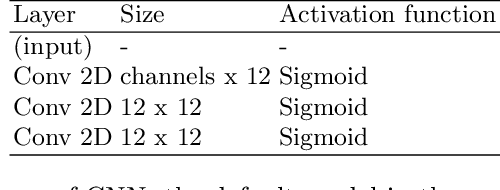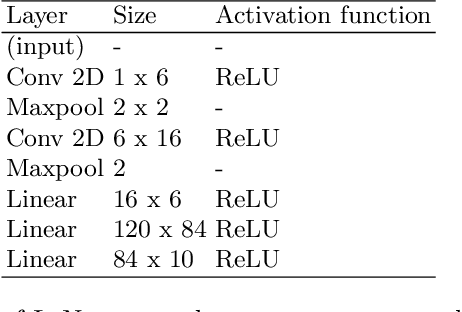Carlos Garcia Cordero
User Label Leakage from Gradients in Federated Learning
May 22, 2021



Abstract:Federated learning enables multiple users to build a joint model by sharing their model updates (gradients), while their raw data remains local on their devices. In contrast to the common belief that this provides privacy benefits, we here add to the very recent results on privacy risks when sharing gradients. Specifically, we propose Label Leakage from Gradients (LLG), a novel attack to extract the labels of the users' training data from their shared gradients. The attack exploits the direction and magnitude of gradients to determine the presence or absence of any label. LLG is simple yet effective, capable of leaking potential sensitive information represented by labels, and scales well to arbitrary batch sizes and multiple classes. We empirically and mathematically demonstrate the validity of our attack under different settings. Moreover, empirical results show that LLG successfully extracts labels with high accuracy at the early stages of model training. We also discuss different defense mechanisms against such leakage. Our findings suggest that gradient compression is a practical technique to prevent our attack.
Parameter Adaptation and Criticality in Particle Swarm Optimization
May 19, 2017



Abstract:Generality is one of the main advantages of heuristic algorithms, as such, multiple parameters are exposed to the user with the objective of allowing them to shape the algorithms to their specific needs. Parameter selection, therefore, becomes an intrinsic problem of every heuristic algorithm. Selecting good parameter values relies not only on knowledge related to the problem at hand, but to the algorithms themselves. This research explores the usage of self-organized criticality to reduce user interaction in the process of selecting suitable parameters for particle swarm optimization (PSO) heuristics. A particle swarm variant (named Adaptive PSO) with self-organized criticality is developed and benchmarked against the standard PSO. Criticality is observed in the dynamic behaviour of this swarm and excellent results are observed in the long run. In contrast with the standard PSO, the Adaptive PSO does not stagnate at any point in time, balancing the concepts of exploration and exploitation better. A software platform for experimenting with particle swarms, called PSO Laboratory, is also developed. This software is used to test the standard PSO as well as all other PSO variants developed in the process of creating the Adaptive PSO. As the software is intended to be of aid to future and related research, special attention has been put in the development of a friendly graphical user interface. Particle swarms are executed in real time, allowing users to experiment by changing parameters on-the-fly.
 Add to Chrome
Add to Chrome Add to Firefox
Add to Firefox Add to Edge
Add to Edge